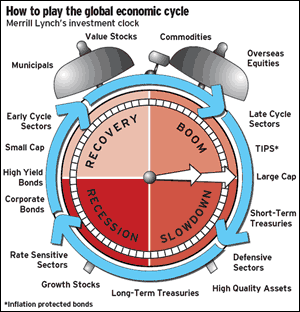I was asked by one of my fellow financial bloggers if I could remember my first time.
“I remember it well, but it’s none of your business!” I said, after the dreamy music and the flashback sequence was over.
Then he clarified that he meant my first time investing.
So I punched him. Sex is one thing, but a man’s first time contemplating the luscious beauty of compound interest? That’s a private matter.
I’m joking, of course – though I’m sure I’m not alone in having found both of my first times somewhat nerve-racking.
In each case I thought I knew what to expect, and in different ways I couldn’t have been more wrong. I’d done a lot of reading beforehand (and looked at a lot of pictures – graphs, I mean!) but both experiences still seemed pretty surreal.
I think it was partly the sense of passing over some threshold.
Yet equally, maybe it was the sense of anti-climax – the realization that this was just the first step on the journey of a lifetime.
Be gentle with me
It’s no easy thing to take cash worth 25% of your good but unspectacular annual income – money you’ve saved the hard way, by not doing all of the fun things your friends have been telling you about for years – and to move it into the stock market.
By 2003, I’d amassed around twice my gross annual income by saving for half a decade or so, and I was ready to redeploy much of it from cash into shares.
Luckily, as teenage advice columns stress about losing your virginity and I’d urge when it comes to starting investing, I choose sensibly and with a time horizon longer than the day after tomorrow.
No wild punts on a tech tiddler for me! I’m pleased to say my first investment was a lump sum purchase of a UK index tracker fund, provided by Legal and General.
Yes, like those faithful teenage sweethearts who promise the world to each other in school before their heads are turned the moment out of sight is out of mind in college, my young heart was pure.
Nowadays I hold variously traded shares, investment trusts, ETFs and VCTs alongside my core index holdings. But to start with, I was a pure index investor. Just like the data says we should be.
What was I thinking?
I’ve got a memory like a sieve – but they say you never forget your first time, and it’s true in my case.
Especially because I kept copious trading notes in those days!
Below is my actual entry from August 2003. You’re seeing an investing obsession finally getting turned into real money after two years of reading up on the subject – and long before I imagined I’d ever blog about it.
31/8/03: I think that we are about to see the market tick up again. I think terrorism is priced into the market, that after three years the worst is over, and that now is a good time to invest, particularly for the long term. I can’t keep writing touchwood, so assume that’s a standing thing for this entire log!
I am going to put the bulk of my money for the next few years in trackers looking at various Indices, but very biased to UK All-share (which includes plenty of international exposure). For the ISA, I will take a few more risks and include some Japan and Far East, and maybe a bit of technology.
I accept total tracker strategy may prove flawed, just because it is only one technique. After five years, I may try something different for a year or two as a hedge. Maybe a high yield portfolio, commercial property, buy-to-let or individual shares. I can’t imagine paying for a managed fund though – the stats are too unanimous.
Finally, there are some who think there’s no point in holding trackers outside of UK Index, due to KISS approach, cheaper dealing costs, and indices tending to follow each other over time. I am not sure what I think about this, but it doesn’t seem right (say you’d been in Japan for 20 years?)
On the other hand, diversification also equals exposure to new risk/mediocrity. But I will be so overweight in the UK that I think some spread is desirable.
Well, there you go – I guess I am a born waffle-writer. Hemingway’s position in the canon is secure.
Also, that was just seven years ago, but it feels like a different era. I think perhaps it always does in the stock market – even though it’s never really different from a longer, cyclic perspective.
Steady as she goes
I still hold the L&G tracker fund today. It’s made a reasonable return.
When I bought it the FTSE All-Share index was about 20% lower than today, so I’ve benefited from the rise in the index over time.
But at least as helpful is the fact that it’s an accumulation fund, which means the All-Share’s dividend income has been automatically reinvested (minus some expenses) over the years to buy new units in the fund.
This steady reinvestment of dividends is a modest method of pound-cost averaging. With the UK market a relatively high-yielder – typically delivering 3 to 4% every year in income – after a few years reinvesting dividend income can add up to a substantial component of your returns.
While I’ve kept hold of this fund, I’ve more generally chopped and changed a lot over the past seven years. Unlike new contributor The Accumulator – who is a sworn low-cost index man – I’m a self-confessed dabbler. I don’t recommend it, but I do it.
Perhaps you’re the same. Everyone sets off with a plan – whether it’s to stick with passive funds, to hunt for the best managers of active funds, or even to try to beat the market by timing or buying individual stocks.
But as George Soros has written in a slightly different context, reflexivity is ever present in investing. Your outcome and the market you experience will change you.
- It was easy to have faith in index funds in the late-1990s, for instance, when shares had gone up fairly steadily for nearly two decades.
- Buying tech shares looked a great idea in 1999, right up until it didn’t.
- More recently, many private investors have made fortunes buy backing oil explorers and mining companies. Others have found buying bonds has delivered better returns in recent years then equities, and with lower volatility.
At any one time, some people think they’ve found the route to riches. They’ll write about it, tell you about it, and drive around flaunting the proceeds of it.
But precious few first loves last a lifetime, and nothing lasts forever in the markets.
Ideally, have a plan and stick to it through thick and thin. Alternatively, stay footloose and fancy free, and don’t mistake a short-term infatuation – with small caps, with bonds, with gold, with whatever – for the big one.
Want to hear more investing debuts? Green Panda Treehouse has written about his first time, while Tom of the Canadian Finance Blog reflects that he should have bought a tracker. Or alternatively, why not share your first time investing with us in the comments below?








Comments on this entry are closed.
I remember it well. Like many others it was the BT privatisation of 1984. Shares were offered, I think, at £1.30 and that is roughly where I sold them at last year. So, not a great investment over 25 years, but the divis were pretty good on the whole. -SG
.-= Salis Grano on: Roundup 24-09-10 =-.
Hi TI
Not a bad start. A tracker fund with an AMC of 0.4%.
I was nowhere near as clever. For me it was an active fund because fund managers know what they’re doing and will beat the market… For all this out performance I was paying fees of 1.78%. The only clever thing I did was buy it through a provider that refunded the contribution fee of 4%.
Of course I no longer hold this product having learnt from this mistake.
.-= RetirementInvestingToday on: How long until a house can be bought for 100 ounces of gold =-.
Cute! My first time investing… I remember it so clearly. I think I was influenced to invest from this guy I had a huge crush on (his knowledge with stock picking was so dreamy…). I bought some stocks and ended up selling them soon after, but I am glad I forayed into investing in equities because of him. =)
.-= youngandthrifty on: The Dangers of Forex Investing =-.
My first time was at the ripe old age of 13. I bought Eurotunnel shares with my birthday money. I learnt more from this birthday present than any other since.
.-= David on: UK Income Tax Blunder – How It Happened =-.
@David – Oh, that’s a shame. What boy wouldn’t want to own an underground railway tunnel – it’s like something a criminal mastermind would aspire to! But yes, the lessons will surely last a lifetime!
@RIT – Yes, I have only ever held a couple of managed funds (e.g. Blackrock Gold and General, and I had the bulk of the contribution refunded by the broker. That said I do hold investment trusts with higher ongoing expenses. Nobody needs to own them, though, however much I admire Lindsell Train, say.
@Young and Thrifty – Sounds like you learned more than one lesson there…
@Salis – Ah, a classic share to start with, yes. If only you’d sold in 1999! With divis, the returns would have been fabulous at that point, no?
This has got to be the most provocative investment article opener I’ve read in a looooong time. My first time learning about investing… I was never more excited than when I started to understand how I was going to retire with 7 figures by the time I hit my 40’s. 🙂
.-= The Digerati Life on: Best Home Based Business Ideas- How To Make A Little More =-.
Good article.
My first nerve-wrecking investment was in Adobe Systems. Looking back, I had no idea what I was doing, and I had no specific strategy, but it sure led to a good path of investing ever since then.
.-= Dividend Monk on: Weekend Links 10-2-2010 =-.